Australians visiting Bali are being warned that basic activities such as leaving your accommodation can land you in hot water during a particularly momentous day on the island.
Nyepi, or the Balinese ‘Day of Silence’, is commemorated every year and requires everyone on the island – tourists included – to stay home, limit their noise and even turn off the lights for 24 hours or face fines and fines.
The day coincides with New Year’s Day on the Balinese Saka calendar, although the actual date varies. In 2024 it was held on March 11.
The local Balinese take the day very seriously with traditional security men known as pecalang, the only people allowed on the streets, beaches and in businesses, looking for those who break the rules.
A screenshot shared to the Bali Travel Forum Facebook group yesterday caused a stir among members as it showed two people simply walking on the beach, which is generally not allowed on Nyepi.
“I just checked a webcam I’ve been monitoring and surprised to see a couple walking on the beach, I thought that wasn’t allowed today,” they captioned the post.
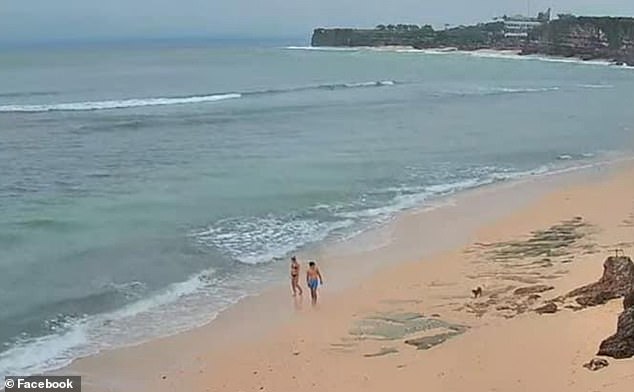
A member of the Bali Travel Forum Facebook group shared this webcam screenshot of two people walking on the beach yesterday during Nyepi, which could attract a large fine
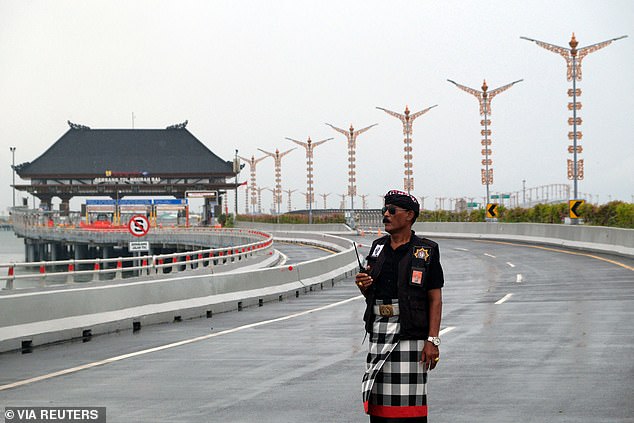

Traditional security personnel known as pecalang patrol the streets of Nyepi
The post received a flood of comments from locals and tourists alike.
‘Officially not allowed. No respect,’ one person wrote.
‘They should know. If they were staying in a hotel or Airbnb for sure, they would have been informed what not to do on Nyepi day,” added another.
‘I’m pretty sure they’re well aware of that. Wouldn’t they wonder why they are the only two people running around where there would normally be crowds?’ said a third.
“Pecalang will catch them soon,” added another.
One even claimed that: ‘Two people were deported last year for going to the beach.’
However, others sided with the two people on the beach.
“Would have hated to have been your neighbor during the shutdowns,” said one.
“I don’t mean any disrespect or disregard for the culture, but this couple is outside in a quiet environment not using their phones or playing music,” added another.
“Maybe they didn’t realize they had to stay indoors … and weren’t intentionally being disrespectful. Inform and educate instead of just being judgmental.’
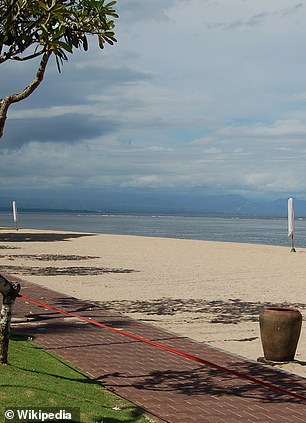

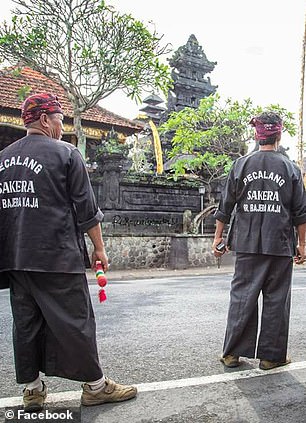

What would be a normally crowded beach under Nyepi (left) and pecalang (right) that can take rule breakers to the police
The Balinese people have observed the Hindu tradition for hundreds of years. It represents a cleansing of the island in preparation for the coming year.
Other festivals take place in the days leading up to it, including Melasti, which represents another cleansing, where thousands of locals dressed in white carry sacred objects from the temples to the sea to be cleansed.
The night before Nyepi, Ngrupuk takes place, where huge papier-mâché monsters made by locals are paraded through the streets before being burned to ashes to represent their defeat.
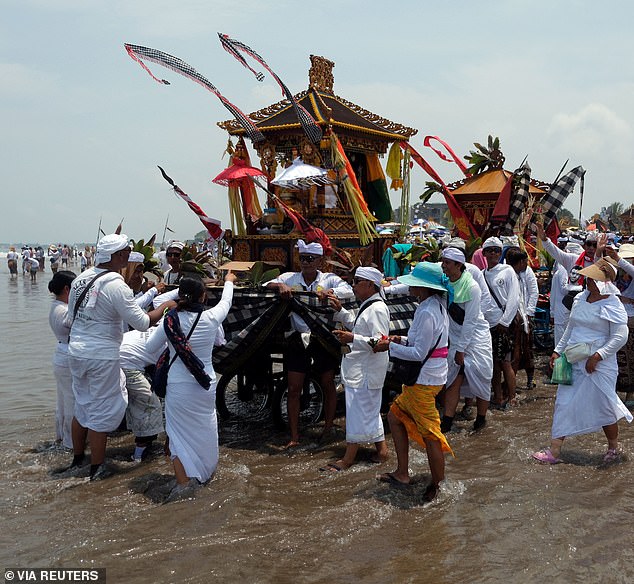

In the days leading up to the Balinese Day of Silence, there are a number of other festivals, including Melasti, where sacred objects from temples are cleansed in the sea
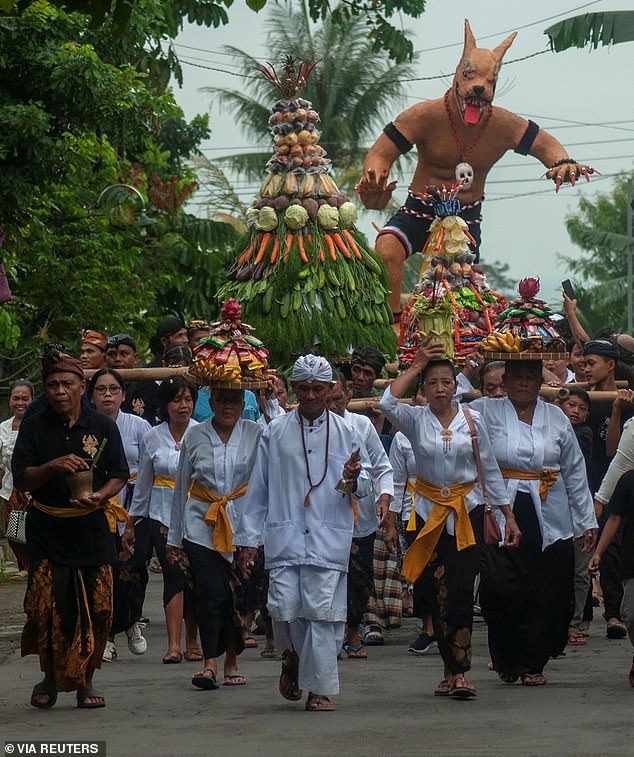

Hindu worshipers parade ogoh-ogoh figures under Ngrupuk the night before Nyepi and make noise to attract evil spirits, who then find the island deserted the following day and leave
The main restrictions on Nyepi are that no fires can be lit and lights must remain off or dimmed, there is also no work, no entertainment and no travel.
Businesses and schools will close for the day, and everyone on the island is required to stay inside their homes or residences.
The airport will also close and planes will be diverted so as not to cause excessive noise.
ATMs will go offline and while electricity remains on, internet may be limited.
Loud numbers and music are also discouraged as locals usually spend the day meditating, fasting and enjoying the company of their families.
Anyone, including tourists, who leave their home or accommodation on the day can receive a fine of 1 million rupiah.
Nyepi lasts for 24 hours from 06.00 on Saka New Year until 06.00 the following day.

